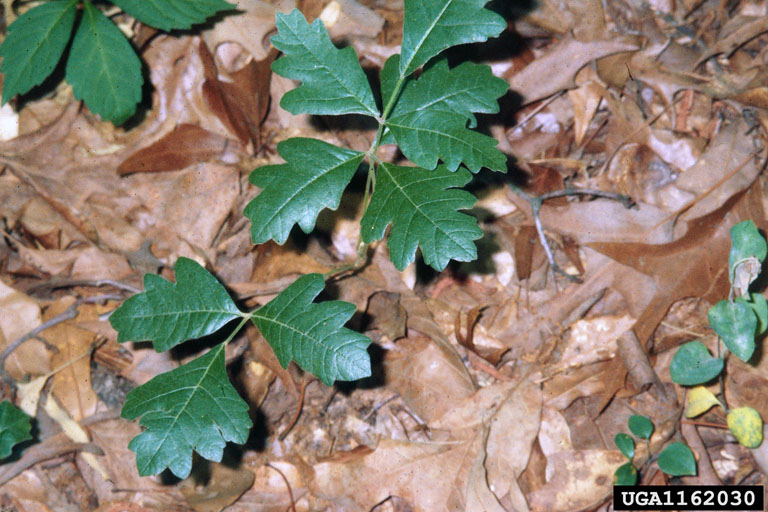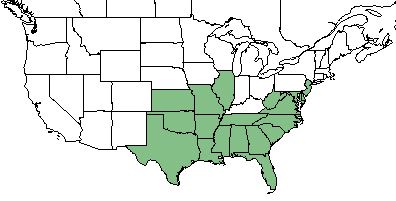Difference between revisions of "Toxicodendron pubescens"
(→Distribution) |
|||
| Line 23: | Line 23: | ||
<!-- Basic life history facts such as annual/perrenial, monoecious/dioecious, root morphology, seed type, etc. --> | <!-- Basic life history facts such as annual/perrenial, monoecious/dioecious, root morphology, seed type, etc. --> | ||
==Distribution== | ==Distribution== | ||
| + | ''Toxicodendron pubescens'' can be found from Long Island, NY south to north Florida, west to eastern Texas and inland to West Virginia, Tennessee, Missouri, and Kansas.<ref name="Weakley 2015"/> | ||
| + | |||
==Ecology== | ==Ecology== | ||
===Habitat=== <!--Natural communities, human disturbed habitats, topography, hydrology, soils, light, fire regime requirements for removal of competition, etc.--> | ===Habitat=== <!--Natural communities, human disturbed habitats, topography, hydrology, soils, light, fire regime requirements for removal of competition, etc.--> | ||
Revision as of 13:34, 21 December 2017
| Toxicodendron pubescens | |
|---|---|

| |
| Photo by David J. Moorhead, University of Georgia, Bugwood.org hosted at Forestryimages.org | |
| Scientific classification | |
| Kingdom: | Plantae |
| Division: | Magnoliophyta - Flowering plants |
| Class: | Magnoliopsida - Dicots |
| Order: | Sapindales |
| Family: | Anacardiaceae |
| Genus: | Toxicodendron |
| Species: | T. pubescens |
| Binomial name | |
| Toxicodendron pubescens Mill. | |

| |
| Natural range of Toxicodendron pubescens from USDA NRCS Plants Database. | |
Common Name(s): poison oak[1], Atlantic poison oak[2]
Contents
Taxonomic Notes
Description
Distribution
Toxicodendron pubescens can be found from Long Island, NY south to north Florida, west to eastern Texas and inland to West Virginia, Tennessee, Missouri, and Kansas.[1]
Ecology
Habitat
This species is very common in sandhills but can also be found in dry woodlands and dry rock outcrops in the Piedmont and mountains.[1]
Phenology
T. pubescens flowers from late April through May and fruits from August through October.[1]